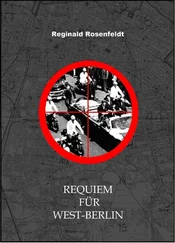Isaiah Berlin - Russian Thinkers
Здесь есть возможность читать онлайн «Isaiah Berlin - Russian Thinkers» весь текст электронной книги совершенно бесплатно (целиком полную версию без сокращений). В некоторых случаях можно слушать аудио, скачать через торрент в формате fb2 и присутствует краткое содержание. Год выпуска: 0101, Жанр: Старинная литература, на русском языке. Описание произведения, (предисловие) а так же отзывы посетителей доступны на портале библиотеки ЛибКат.
- Название:Russian Thinkers
- Автор:
- Жанр:
- Год:0101
- ISBN:нет данных
- Рейтинг книги:3 / 5. Голосов: 1
-
Избранное:Добавить в избранное
- Отзывы:
-
Ваша оценка:
- 60
- 1
- 2
- 3
- 4
- 5
Russian Thinkers: краткое содержание, описание и аннотация
Предлагаем к чтению аннотацию, описание, краткое содержание или предисловие (зависит от того, что написал сам автор книги «Russian Thinkers»). Если вы не нашли необходимую информацию о книге — напишите в комментариях, мы постараемся отыскать её.
Russian Thinkers — читать онлайн бесплатно полную книгу (весь текст) целиком
Ниже представлен текст книги, разбитый по страницам. Система сохранения места последней прочитанной страницы, позволяет с удобством читать онлайн бесплатно книгу «Russian Thinkers», без необходимости каждый раз заново искать на чём Вы остановились. Поставьте закладку, и сможете в любой момент перейти на страницу, на которой закончили чтение.
Интервал:
Закладка:
itself a powerful factor in causing the final cleavage between liberal
and authoritarian socialism in 1 9 1 7, and the fatal divergence of paths
between Russia and Europe which followed. Perhaps F. I. Dan was
right in supposing that this was the parting of the ways which Herzen
had in mind when, addressing Edgar Quinet, he declared, 'You [will
go] by way of the proletariat towards socialism; we by way of socialism
to freedom.'2 The difference in the degree of political maturity
between Russia and the west at this period is vividly described in the
introduction to Letttrs from Franct and Italy which Herzen composed
in his Putney exile. His topic is the revolution of 1 848 in western
Europe:
The liberals, those political Protestants, became in their turn the
most fearful conservatives; behind the altered charters and con"'
stitutions they have discovered the spectre of socialism and have
grown pale with terror; nor is this surprising for they . . . have
something to lose, something to be afraid of. But we [Russians] are
not in that position at all. Our attitude to all public affairs is much
simpler and more naive.
The liberals are afraid of losing their liberty-we have none;
they are nervous of interference by governments in the industrial
sphere-with us the government interferes with everything anyhow;
they are afraid oflosing their personal rights-we have yet to acquire
them.
1 Quoted by F. I. Dan, Proislthozlulenit 6o/s�iZIIffl (New York, 1946),
PP· 36, 39·
1 Ko/oltol, No z 1o (1 December 1 865); referred to by Dan, ibid.
3

R U S S IAN T H I NK E R S
The extreme contradictions of our still disordered existence, the
lack of stability in all our legal and constitutional notions, on the
one hand makes possible the most unlimited despotism, serfdom and
military settlements, and on the other creates conditions in which
such revolutionary steps as those of Peter I and Alexander II are
less difficult. A man who lives in furnished rooms finds it far
easier to move than one who has acquired a house of his own.
Europe is sinking because it cannot rid itself of its cargo-that
infinity of treasures accumulated in distant and perilous expeditions.
In our case, all this is artificial ballast; out with it and overboard,
and then full sail into the open sea ! We are entering history full of
strength and energy at precisely the moment when all political
parties are becoming faded anachronisms, and everyone is pointing,
some hopefully, others with despair, at the approaching thundercloud of economic revolution. And so we, too, when we look at our neighbours, begin to feel frightened of the coming storm, and
like them, think it best to say nothing about this peril . . . But you
have no need to fear these terrors; calm yourselves, for on our
estate there is a lightning conductor-communal owntrship of tht /and/1
In other words, the total absence of elementary rights and liberties,
the seven dark years which followed 1 848, so far from inducing
despair or apathy, brought home to more than one Russian thinker the
sense of complete antithesis between his country and the relatively
liberal institutions of Europe which, paradoxically enough, was made
the basis for subsequent Russian optimism. From it sprang the
strongest hope of a uniquely happy and glorious future, destined for
Russia alone.
Herzen's analysis of the facts was quite correct. There was no
Russian bourgeoisie to speak of: the journalist Polevoy and the highly
articulate literary tea merchant, Botkin, friend of Belinsky and Turgenev, and indeed Belinsky himself, were notl'lble exceptions-social conditions for drastic liberal refonns, let alone revolution, did not exist.
Yet this very fact, which was so bitterly lamented by liberals like
Kavelin and even Belinsky, brought its own remarkable compensation.
In Europe an international revolution had broken out and failed, and
its failure created among idealistic democrats and socialists a bitter
sense of disillusion and despair. In some cases it led to cynical detachment, or else a tendency to seek comfort either in apathetic resignation, 1 A. I. Herzen, 8o6rt1t1it sochifltflii o tridtst�ti tomt�lh (Moscow, 19S+-6S),
vol. ), pp. 1 3-1 +·
4

R U SS I A AND 1 8 48
or in religion, or in the ranks of political reaction; very much as the
failure of the revolution of 1 90 5 in Russia produced the call to
repentance and spiritual values of the J?ekhi group. In Russia, Katkov
did become a conservative nationalist, Dostoevsky turned to orthodoxy,
Botkin turned his back upon radicalism, Bakunin signed a disingenuous
'confession'; but in general the very fact that Russia had suffered no
revolution, and no corresponding degree of disenchantment, led to a
development very different from that of western Europe. The important fact was that the passion for reform - the revolutionary fervour and the belief in the feasibility of change by means of public pressure,
agitation, and, as some thought, conspiracy-did not weaken. On the
contrary, it grew stronger. But the argument for a political revolution,
when its failure in the west was so glaring, clearly became less convincing. The discontented and rebellious Russian intellectuals of the next thirty years turned their attention to the peculiarities of their
own internal situation; and then, from ready-made solutions, imported
from the west and capable only of being artificially grafted on to the
recalcitrant growth provided by their own countrymen, to the creation
of new doctrines and modes of action adapted carefully to the peculiar
problems posed by Russia alone. They were prepared to learn and more
than learn-to become the most devoted and assiduous disciples of the
most advanced thinkers of western Europe, but the teachings of Hegel
and the German materialists, of Mill, Spencer and Comte, were
henceforth to be transformed to fit specifically Russian needs. Bazarov,
in Turgenev's Fathers and Childrm, for all his militant positivism
and materialism and respect for the west, has far deeper roots in Russian
soil, not without a certain self-conscious pride, than the men of the
1 84os with their genuinely cosmopolitan ideal: than, for example, the
imaginary Rudin, or indeed the supposed original of Rudin-Bakunin
himself, for all his pan-Slavism and Germanophobia.
The measures taken by the Government to prevent the 'revolutionary disease' from infecting the Russian Empire, did no doubt play a decisive part in preventing the possibility of revolutionary outbreaks:
but the important consequence of this 'moral quarantine' was to
weaken the influence of western liberalism; it forced Russian intellectuals in upon themselves and made it more difficult than before to escape from the painful issues before them into a kind of vague search
for panaceas from the west. There followed a sharp settling of internal
moral and political accounts: as hope receded of marching in step with
western liberalism, the Russian progressive movement tended to
s
R U S SIAN T H I N KERS
become increasingly inward-looking and uncompromising. The most
crucial and striking fact is that there was no inner collapse on the part
of the progressives, and both revolutionary and reformist opinion,
Читать дальшеИнтервал:
Закладка:
Похожие книги на «Russian Thinkers»
Представляем Вашему вниманию похожие книги на «Russian Thinkers» списком для выбора. Мы отобрали схожую по названию и смыслу литературу в надежде предоставить читателям больше вариантов отыскать новые, интересные, ещё непрочитанные произведения.
Обсуждение, отзывы о книге «Russian Thinkers» и просто собственные мнения читателей. Оставьте ваши комментарии, напишите, что Вы думаете о произведении, его смысле или главных героях. Укажите что конкретно понравилось, а что нет, и почему Вы так считаете.










